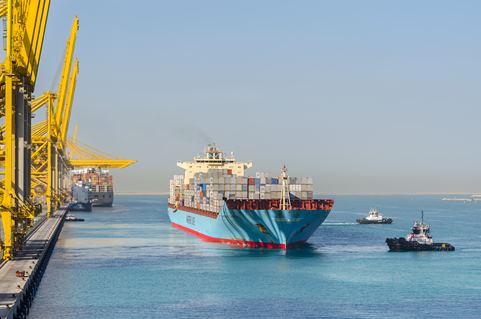Panalpina applies War Risk Surcharge for Strait of Hormuz
Panalpina, the world’s fourth largest provider of ocean freight services is applying a War Risk Surcharge for the Strait of Hormuz as a result of significantly increased insurance premiums for all vessel operators going through the busy waterway.

Panalpina, the world’s fourth largest provider of ocean freight services is applying a War Risk Surcharge for the Strait of Hormuz as a result of significantly increased insurance premiums for all vessel operators going through the busy waterway.
As the world’s fourth largest provider of ocean freight services, Panalpina enjoys partnerships with the majority of the world’s biggest ocean carriers, contracting space allocations on a variety of routes including through the Strait of Hormuz.
Shipping lines faced with increased insurance premiums
Some of these carriers such as Cosco, Maersk and CMA CGM, have introduced a War Risk Surcharge (WRS) in response to significantly increased insurance premiums related to the geopolitical tensions in the Gulf region.
“There is an increased risk of operating in the Gulf region and a sense of insecurity for shipments going through the Strait of Hormuz. Now that shipping lines have added insurance-related surcharges for such shipments, we have to pass these costs on in order to stay competitive and keep up the high-quality service for our customers,” explains Peder Winther, Panalpina’s global head of Ocean Freight.
Flat surcharge for FCL and LCL shipments going through Strait of Hormuz
To simplify matters for its customers, Panalpina, through its in-house carrier Pantainer Express Line, has decided to introduce a flat surcharge for all shipments going through the Strait of Hormuz.
- For Full Container Load (FCL) shipments, Panalpina charges USD 52 per TEU (twenty-foot equivalent unit).
- For Less than Container Load (LCL) shipments, the freight forwarder charges USD 3 per m3.
The simplified charges apply as of today for all shipments – with one exception: For shipments that involve the USA, either at destination or origin, the surcharges will only become effective on August 1, 2019.
Keeping a close eye on developments
“What counts is the date of the Bill of Lading, “explains Winther, adding: “We are keeping a close eye on the developments in the Gulf region and we will adjust the War Risk Surcharge accordingly.”
Panalpina’s surcharge currently applies to shipments via the Strait of Hormuz and to shipments with destination or origin port in Bahrain, Iraq, Kuwait, Oman, Qatar, Saudi Arabia (Eastern Province ports Dammam and Jubail), and the UAE.
In 2018, Panalpina expedited 1.5 million TEUs via ocean freight, many of them through the Strait of Hormuz, which is one one of the world’s busiest and most important global trade lanes.
In recent weeks, tankers were attacked near the Strait of Hormuz.
